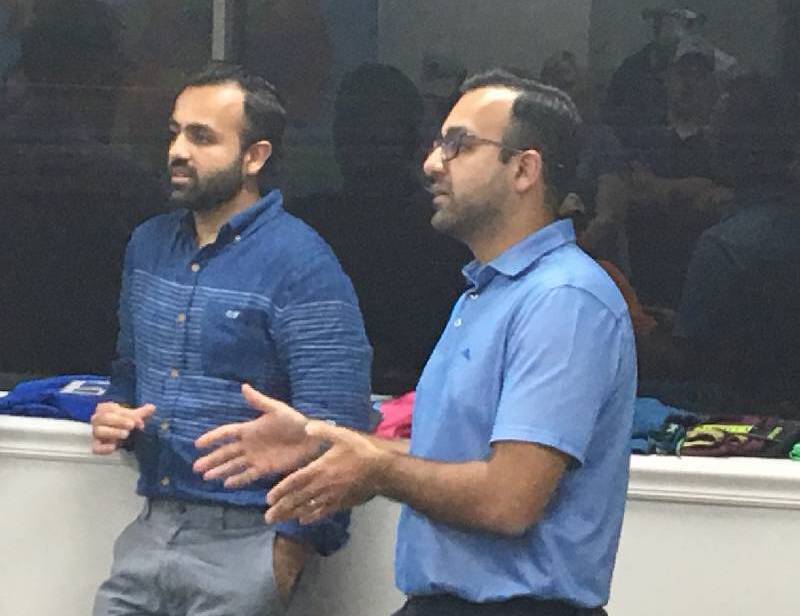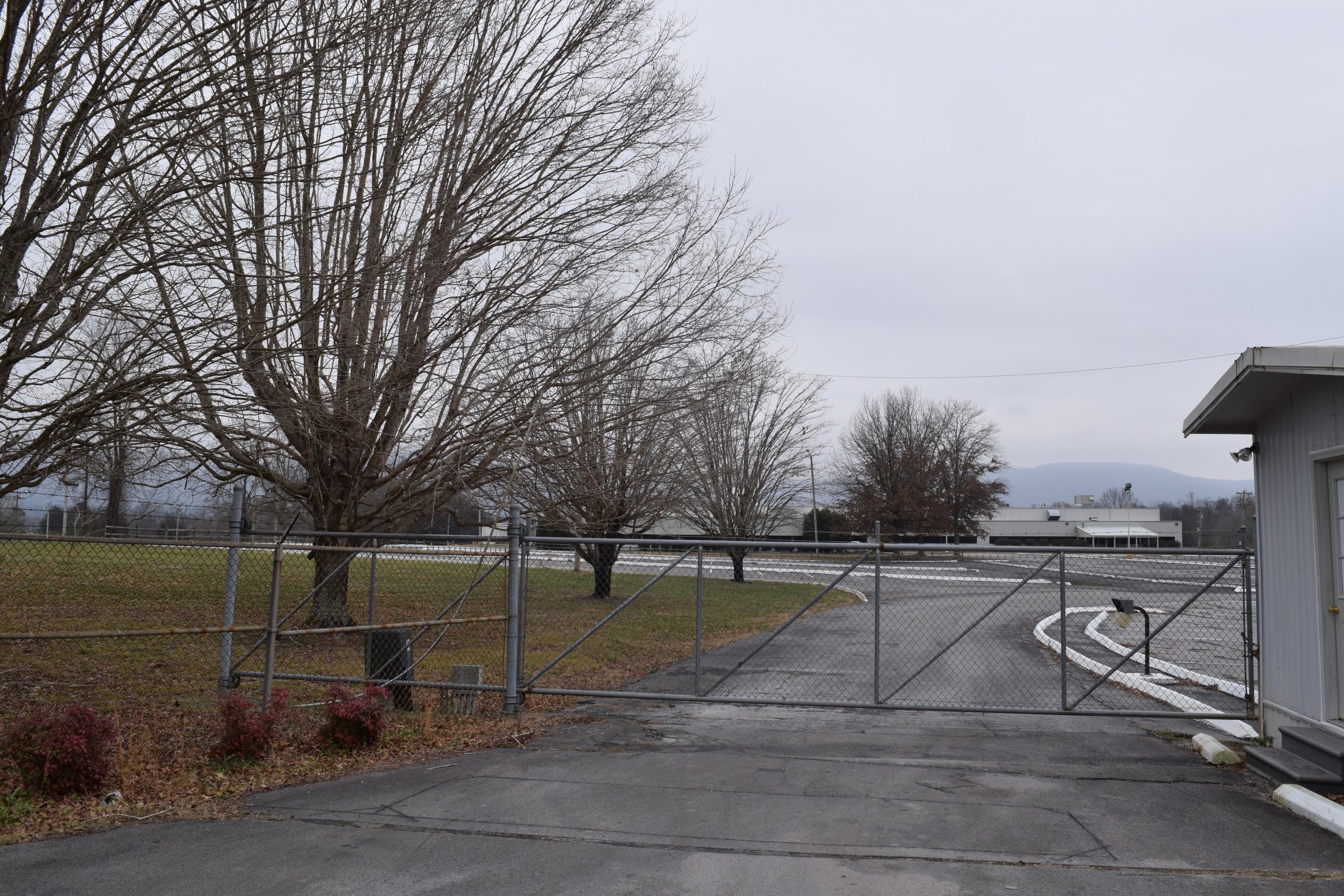The twin brothers who promised to bring nearly 1,000 jobs to one of Tennessee's economically distressed counties lied about a Pakistani company being behind their venture and used false financial statements and affidavits to secure grants from the state of Tennessee and the Tennessee Valley Authority for a project they never got off the ground, according to a state audit released Tuesday.
Rahim and Karim Sadruddin will enter federal prison Aug. 16 after being sentenced last month to 50 months in jail for defrauding the government with claims they were converting a former automotive factory in Pikeville into the headquarters of the Textile Corp. of America that would create 995 jobs in Bledsoe County.
In a 15-page audit released Tuesday, Tennessee's comptroller detailed the web of lies the Sadruddin twins used to get a $3 million state grant as well as assistance from TVA and a FEMA contract for tarps in hurricane-damaged Puerto Rico. The audit said the Sadruddins used some of the money for their own home and vehicles and took $10,000 of state grant money to make a campaign contribution to their company's attorney, Troy King, who ran unsuccessfully as a Republican candidate in 2018 trying to reclaim the Attorney General job he previously held in Alabama.
Bob Rolfe, the commissioner for the state Department of Economic and Community Development, said Tuesday the Sadruddins defrauded the state, TVA, local officials and the Federal Emergency Management Agency in what he said was the worst instance of fraud in the past decade for his department.
"We've administered over 1,000 grants in the past seven or eight years and this is the only fraudulent grant we are aware of," Rolfe said.
 Photo by Dave Flessner / Rahim and Karim Sadruddin talk about their plans for the Textile Corp. of America in Pikeville, Tennessee. Despite their claims they were going to build a plant with 995 employees, the project never hired any manufacturing workers and the Sadruddins are headed for federal prison in August.
Photo by Dave Flessner / Rahim and Karim Sadruddin talk about their plans for the Textile Corp. of America in Pikeville, Tennessee. Despite their claims they were going to build a plant with 995 employees, the project never hired any manufacturing workers and the Sadruddins are headed for federal prison in August.But auditors said the state's economic development agency "did not verify the validity of the information on the grant application before it awarded the grant" and circumvented the requirement for a bank letter as proof that the company had adequate resources to fund the project.
"There was also a failure to verify the work was completed," the audit said.
Jason Mumpower, the state's comptroller, said the audit "describes a disappointing scheme, and it also highlights the need for improved accountability over state grant money."
"I'm encouraged to note that ECD is taking more steps to verify the validity of the information on grant applications, review supporting documentation more carefully, and ensure it is following its own policies and procedures surrounding grant awards," Mumpower said in a statement Tuesday.
Rolfe said in response to the failed textile mill in Pikeville, ECD has changed its review of foreign direct investments in the state, which account for nearly one third of the major projects receiving Fast Grants like Textile Corp. of America got in 2017 and 2018.
"As the leader of this department, I take full responsibility for what happened," Rolfe said. "The way we would have been able to detect this fraud is if we had physically visited the alleged parent company in Pakistan. So one of the policy and procedure changes that I have implemented is that when we have a project that is a foreign direct investment that is of material size from a grant perspective, either I or one of our senior professionals will go do our homework in-country and visit with that company. If we had done that, perhaps we could have detected that this was a fraudulent situation."
Rolfe said the state has received some restitution from the Sadruddins, although most of the $3 million grant is probably lost now that the brothers are headed for jail and no longer able to earn any income.
Investigators determined the Sadruddins made numerous false statements and submitted fictitious documents to the state in order to obtain the grant, including:
* Claims that Textile Corp. of America (TCA) was a subsidiary of an established textile manufacturer in Pakistan that was the parent company when, in reality, the manufacturer had no business relationship with TCA.
* Stating that TCA and the Pakistani manufacturer had 3,480 employees worldwide when, in reality, TCA had no employees.
* Submitting a copy of the 2016 audit report for the Pakistani company as evidence that TCA had adequate funds to invest in the $27.1 million dollar project in Pikeville when TCA was not related to the company.
* Stating that TCA would hire 995 people. Karim Sadruddin admitted he knew TCA would never hire that many people, and he inflated the number of jobs in hopes of receiving more grant money.
Once the grant was awarded, TCA created and submitted fake invoices, wire transfer documents, and other information indicating that work was being done and contractors were being paid in order to receive grant reimbursement payments from the state.
In the summer of 2017, state officials eagerly welcomed the investment in Bledsoe County, one of Tennessee's most economically distressed counties according to the Appalachian Regional Commission. During an announcement of the textile plant in Pikeville, then Gov. Bill Haslam called the Sadruddins' project "a great example for Bledsoe County and all of Tennessee."
But by the summer of 2018, Rolfe said he began to suspect fraudulent activity by the brothers and alerted the state's Attorney General, which ultimately led to a federal investigation of the Sadruddins.
Even after taking the $3 million state grant and claiming the project was ready to begin, TCA had completed a minor portion of the building retrofit and only 10 sewing machines had been temporarily installed by January 2019, the audit found. No manufacturing jobs were ever created.
Karim and Rahim Sadruddin eventually both plead guilty to multiple charges in state and federal court and have been ordered to pay more than $7 million in restitution, in addition to their 50-month jail sentences.
Rolfe said his agency works to help ensure that grant recipients create the jobs they pledge to provide in Tennessee and when they don't, some or all of the funding must be repaid to the state.
Last year, Rolfe said his department had successfully "clawed back" more than $18 million of grants and the state was suing companies to recover another $11 million of incentives given to businesses by the state.
Rolfe made his comments in response to an earlier audit by then Comptroller Justin Wilson who said ECD "management did not establish adequate controls to mitigate risks" associated with Tennessee's FastTrack grants.
Contact Dave Flessner at dflessner@timesfreepress.com or 423-757-6340.


